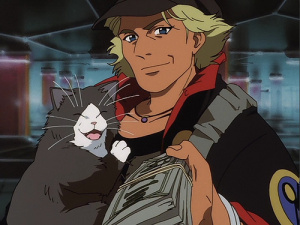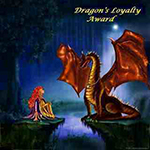by Mayumi-H | Apr 30, 2019 | It's My Life
Let me start by saying this post is not to pooh-pooh fanfiction or the many writers and readers who enjoy it. I believe fanfiction is a valid and important writing form that produces many wonderful stories that bridge borders and offer opportunities for readers of all types.
That’s not what I’m going to talk about, though.
My Fanfiction Writing Life
I think the very first story I ever wrote was a fanfic. For those unfamiliar, fanfiction is stories about characters and worlds already established through media like television, movies, comic books, and videogames. From the rebel hideouts of Star Wars to the high school hallways of Persona 4, I loved wandering through them all. Moreover, I loved the people in them. Their stories sparked a light in me that would often keep me up long into the night, when I would scribble out side stories of my own leading them into new adventures and romances.
Over time, I took an interest in creating my own characters in those worlds: people who could support, antagonize, romance, and challenge the pre-existing characters I already adored. In the fanfiction realm, we call those homemade creations “Original Characters”, or OCs for short.
In the beginning, my OCs were supporting characters only. I felt like readers wouldn’t want to read about my original characters butting into the lives of their well-known favorites. For the most part, that held true. Feedback from readers showed that they didn’t care about the side characters I was creating. Some readers got so offended by my OCs that they wrote me hate mail! I decided the hassle simply wasn’t worth it.
But there was more to my leaving fanfiction than just some petty reader backlash.
What Changed
The more I wrote my OCs, the more attached I became to them. I realized I loved many of them more than I liked the pre-existing folks. My OCs started to take on lives, loves, and destinies of their own, sometimes completely separate from their source material. After not very long, the fanfiction roots for many of my OCs started to lose their luster. I wanted my characters to be my characters alone, with no ties to someone else’s (read: some company’s) world or story.
In 2017, I began the process of taking down most of my fanfiction. Two years later, only a handful remain on public sites like Fanfiction.Net and AO3. With only 1 or 2 exceptions, nobody seemed to miss them.
Now, it’s not like I don’t care about those stories. I’d spent time and effort – weeks, months, sometimes even years of my life – writing, crafting, drafting, and editing. Still, it felt good to reclaim them from the cavernous depths of the Internet*. Now, they’re just mine. Their being mine allows me to go back and rewrite, repurpose, or just reread at my leisure without the pressure to make them match my current level of skill. That means a lot of them stay ugly and amateurish, but I’m fine with that.
What’s Next
I haven’t completely given up on fanfiction. At the same time that I was taking down other fanfiction stories, I wrote a completely new one based on the Metro:2033 series. I recently revisited my “Doctor Who” Songbirds stories for sharing here. I’m sure my joy will be sparked by some pre-made world or character again in the future. I look forward to it! Until then, I will enjoy and take pride in the worlds and people of my own creating.
To those still writing fanfiction: Keep writing it! There’s a lot of joy and support to be found in the fanfiction writing community. I found and made good friends through sharing those stories.
And for those looking to move from fanfiction to original fiction: You can do it! Your fanfiction writing roots will serve you well in creating your own worlds and characters.
* Nothing is ever completely gone from the Internet, but the stories aren’t easily accessible anymore. That said, there are some stories I’ll never share again, for varying reasons of time, file size, and text.
What about you?
Have you ever read fanfiction? Written it? What are your favorite fanfiction genres, series, or characters? Let me know in the comments below!
by Mayumi-H | Jan 1, 2015 | Finding Mister Wright, It's My Life, Writing Projects
Apparently, WordPress has monkeys working for them, to calculate my 2014 statistics. That sounds about right, I think.
This was a weird year for me. I wouldn’t want to repeat it, but I definitely learned a lot. The one thing this recap post doesn’t recognize is that I actually did a lot of writing this year. In fact, all of my “Finding Mister Wright” vignettes were written in this year alone! That’s eight little stories, in all!
Thank you to everyone who stayed with me through this year. I won’t name names because that’s not very fair, but please know that I’m grateful for every look, like, and comment you’ve sent my way, because those little gestures have always made me feel not so alone.
I hope to be more productive in the year to come, and I hope that you’ll join me for it!

Here’s an excerpt:
A San Francisco cable car holds 60 people. This blog was viewed about 1,700 times in 2014. If it were a cable car, it would take about 28 trips to carry that many people.
Click here to see the complete report.
by Mayumi-H | Dec 14, 2013 | Fearless, From Hell (A Love Story), Process
So, as some folks know, I’m writing this sci-fi western story based on a videogame universe. Blah blah blah, I know, it’s fan fiction and not real writing, whatever. I’m still having a blast with it, and just one of the reasons why is it’s given me a new perspective on some old characters.
For those who read “Anywhere but Here,” my 2012 NaNoWriMo project: Remember Tych and Imien? They were the pilot and the cypher, the secondary runaway characters following the two mains in the teenager half of the story. (Don’t worry if that’s confusing. It’s not important for this post.) Anyway, I came to a point in my current story, “From Hell,” where I needed a getaway ship. At first, I’d planned to model the ship’s captain on the character VT from the seventh session (episode) of the anime Cowboy Bebop, “Heavy Metal Queen.”

– screen capture: “Cowboy Bebop” –
If you’ve any interest in anime, sci-fi bounty hunter stories, or jazz music, check out Bebop. But, again, not important to this post.
In playing around with the different interaction scenarios between the main characters of “From Hell” and the ship’s captain, I realized the ship couldn’t have just one crew member. So, I developed a daughter for Janus (that was going to be the captain’s name). On the story went, but neither Janus nor the daughter character really took hold with me. The daughter, by the way, never even got far enough in my thought process to get a name. That should tell you something about how well that subplot was going.
One afternoon, I was sitting at my writing desk working on designs for the ship. (That went through a few permutations, too.) I stumbled across an old sketch I’d made of the Ridout, the smuggler’s ship from “Anywhere but Here.” Never one to pass up the opportunity to save the world from my terrible vehicle sketches, I considered my work on the new ship done. And, quite suddenly, it hit me.
I already had a smuggler crew, all ready to go, fleshed out and everything. Enter Tych and Imien…or, as I renamed them, Twitch and Ivory. I’d always liked the Tych and Imien characters, but their personal stories never got any deep attention in “Anywhere but Here,” focused as the story had been on the more major plight of four teenagers on the run from the galactic government. Bringing them into “From Hell” offered me a chance to examine their personalities in a more acute light. Plus, their own conflict, such as it is, relates well to that of the main characters…who are also on the run, now that I think about it, but that’s a thought for another time.
Of course, Tych and Imien had to go through some changes to make the jump from one universe to the other, but I couldn’t believe how stupid I’d been not to consider reusing these characters before! I’d borrowed pieces of other characters to create new ones before – I think every writer does that, at least at a subconscious level. For instance, the second principal character in “From Hell” – Hal, Axton’s engineer partner – developed from a mishmash of Amber from Fearless (cultured and sensitive, but also an elitist snob), and the Brock and Captain Aral characters from “Anywhere but Here” (sharp, loyal, a know-it-all techie, but afraid to pull a trigger). In turn, those characters developed from ones to come before them. I could draw up a whole family tree of where my characters come from…but it would probably be as confusing as the Baratheon/Lannister line of heirs!
I had to bring this up because I’m just having so much darn fun writing this story, and I wanted to share some of my excitement. I’ll go back to more serious stuff next time. Maybe.
Do you recycle characters?
by Mayumi-H | Apr 3, 2013 | Persona 4 Fan Fiction, Uncategorized
I’m a terrible blogger.
In the last several months, I’ve been nominated for some very sweet awards, and it’s taken me forever to post them! Here they are:





I was nominated for these awards by:
- JM McDowell (Dragon’s Loyalty Award), who runs http://jmmcdowell.com/, a blog filled with good humor, advice, and original stories about her archaeologist mystery-cracker, Meghan Bode;
- Jenny the Wren (Liebster Award), who writes up all kinds of different musings, reviews, and personal stories of life and new-mommyhood over at http://itsjennythewren.wordpress.com/;
- Subhan Zein (Versatile Blogger and Tell Me About Yourself Awards), the talented and soulful writer of short stories, poetic observations, and freedom from the mundane at http://subhanzein.wordpress.com/;
- Summer (Wonderful Readership Award), whose inner peace and graciousness always shine through on her blog, http://summer4soul.wordpress.com/.
Some of these awards come with rules for posting: nominate so many bloggers, tell so many facts about yourself, don’t stop the giving chain. Normally, I’m one to adhere to rules. But, for the purpose of blogging awards, I usually let those rules go.

“The rules are, there ain’t no rules!”
But, for those of you interested, some “facts” about me:
- I like saying I’m an artist, but, really, I’m a jock. I have to exercise every day, or I don’t feel like myself. At school, I competed in Track and Field; the 100-meter dash was my main event, and I anchored our team for the 400-meter relay. I love swimming, and surfing is a relatively new passion. Aside from the sprints, I’m not a great runner, though I often find it centers me. When I’m feeling troubled, there’s not much that can’t be cured by a good, sweaty run!
- I’m Miss Middle-of-the-Road. Maybe it comes from being a Libra, but I’ve always had to look at both sides of a situation. Sometimes, that’s helpful, like when I have to mediate an argument between family or friends. Other times, not so much, as it can cause me to vacillate too long, and opportunities can pass me by!
- I’m not the brightest bulb…but I’m not the dimmest, either. Sports are, by their very nature, competitive, and that competitiveness found its way into other parts of my life. I was always comparing myself to other people: their strengths, their successes, the accolades and adulation. But, for every winner, there has to be a loser. It took a long time for me to understand that losing gracefully can be just as worthwhile as winning graciously. A good thing, since winning is so rare!
- I play favorites. Not among my family (my sister), or for my girls (the older one), but with my characters. Whoever is foremost in my story-writing brain naturally gets privileged child status, of course, but I’ll always have my perennial favorites, too, especially in my fan works.
- Speaking of fan works, there’s nothing wrong with writing what you want, whatever that may be. Fan fiction, open poetry, stream of consciousness diary, historical biography, children’s, drama, sci-fi, horror, terror, thriller, romance, research, religion, comics, smut, slice of life, short fiction, long fiction – it’s all good. Certainly, some of those genres relate more easily to publishing, but always write first for your own passion.
- Lastly, I can only be myself, just like you can only be yourself. Every person has their own conflicts, their own burdens, their own triumphs. The world is a big place; we only ever see a sliver of it. But, just because we don’t see it, doesn’t mean it isn’t there. So, be excellent to each other.
[youtube http://www.youtube.com/watch?v=J7532GXPnO8]
Would you like to pick up one of the above awards? Please, feel free to grab the icon!
If you’re looking for some great bloggers to follow, I advocate the talented ladies and gent above – JM McDowell, Jenny the Wren, Subhan Zein, and Summer – as well as some other blogs and bloggers I always make certain to keep up with:
Many thanks go out to everyone who’s ever followed, liked, or commented on my words and musings.
Happy blogging, everyone!
by Mayumi-H | Feb 6, 2013 | Persona 4 Fan Fiction, Process
I think all of us writers write for joy: we’re driven to create worlds with words, just as painters create with their palettes and brushes. But, some of us are looking to push further with our words, to reach a greater audience. We want that valuable place on someone’s bookshelf (or a tab in their e-reader).
There are many, many stages to becoming a published writer. First, you’ve got to have a story. You write, you edit, you tweak. You set it aside, write something else, come back again. You send out copies to betas. You find a critique partner. You get yourself a story editor and a copy editor (maybe they’re one and the same, maybe not). You tap the brain of your old journalism buddy to help you write a tagline. You treat your friend in advertising for help with your sales pitch. You scour the Internet for tips on writing a great query letter. I could keep adding to this list forever…!
There are some terms and abbreviations many if not all writers use, these days. I’m going to start off a list of them, because I know some of them puzzled me when I first saw them. So, hopefully, you can learn from my ignorance. (Hey, at least I’m good for something!)

I write in English…yet, sometimes, it feels like a foreign language!
- ARC – Advance Reading Copy (or sometimes Advance Review Copy), an almost-ready-for-publication copy of the manuscript (which may still have a few errors) that is sent out prior to publication in order to be reviewed. (provided by Vanessa-Jane Chapman)
- Beta Reader (beta): A beta reader is a draft-reader. Often, someone with whom you can bounce off your early draft ideas. Some folks like to offer beta readers a very loose first draft; others give their betas a close-to-finished product. That’s your decision, as a writer. Many family members or friends should be considered beta readers, since – odds are – they’re not professional writers and/or editors…and their job is really to boost your confidence. Beta readers can also become Critique Partners.
- Bio: Not the class at school, but your Author’s Biography. Your biography is where you can toot your own horn about your writing/publishing experience, your outlook, what awards you’ve won, and so on. Be careful to keep this short and sweet, especially if you’re writing a Query letter.
- Critique Partner (CP): For the longest time, I’d see people mention CP and think they were talking about Unix commands! Then, I realized they meant Critique Partners. A critique partner is like a beta reader on steroids. This is someone you truly trust with your story, to show you where there are plot holes and lag, but also where your dialogue is fresh and your description vivid. It’s a marriage relationship between writer/reader: you give honest, helpful critique, and you get honest, helpful critique in return. It’s not a relationship to enter into lightly. Critique Partners are sometimes a writer’s last personal step before they ship a manuscript off to an editor or agent.
- Draft: A story in not-yet-finished form. Some writers make only one – their first – draft, before shipping their story off to an editor, agent, or publisher. (I think I’m on draft 6 or 7 of my novel….) It all depends on the type of writer you are.
- Graf/Graph: A shortened way of writing “paragraph.” It’s got nothing to do with statistics or charts.
- Ed: Not just some random guy (or horse), “Ed” is short for “Editor,” one of the most valuable partners for your book you’re likely going to have. You might already have a good story, but a competent and careful editor can make that good story a great one.
- Hook: A concise summary of your story, usually no more than one sentence. AKA the Tagline for your book.
Some folks also use the term “hook” to refer to the bit at the end of a chapter that will make the reader want to keep turning your pages. No matter how you use the term, though, it almost universally refers to the reason to keep reading.
- Manuscript (MS): MS is just a faster way to write “manuscript,” which is just another word for your story. Stories in many stages can be manuscripts, but I personally favor reserving the term for a story in its completed form (edited or not); I wouldn’t call a series of scenes mashed together into the same document a “manuscript.”
- Mini-Synopsis: Used for Query letters. See “Synopsis” for an explanation … only the Mini-Synopsis is much more concise, usually only one paragraph.
- Multiple Submissions/Simultaneous Submissions – Important to understand the difference because some publishers/agents specify that they don’t accept one or the other. So, Multiple Submissions is sending more than one book idea or proposal to a particular publisher or agent at the same time. Simultaneous Submissions is sending out one book idea or proposal to more than one publisher or agent at the same time. (provided by Vanessa-Jane Chapman)
- Protag: Short for “protagonist,” or, the hero(ine) of your story. Funnily enough, I see/use the term protag all the time, yet I don’t think I’ve ever seen anyone use the shortened “antag” for “antagonist.” Go figure.
- Query: A query is the letter you send to agents and publishers. It consists of three parts (usually a paragraph each): your Hook, your Mini-Synopsis, and your Author’s Bio. Go here for some more in-depth discussion on writing a query letter.
- Synopsis: Um, just what it says: a concise synopsis of what your story is about. Pluck a book from your shelf and look at the back cover or inside jacket. Usually, that’s where you’ll find the synopsis. Study how to write these, especially if you want to write a successful Query letter.
- Tagline: See “Hook.”
- WIP – Work in Progress. The current writing piece you are working on. (provided by Vanessa-Jane Chapman)
I know I’m missing terms you probably use all the time. So, please feel free to add them in the comments section, and I’ll update this list periodically. If you supply the definition, I’ll be certain to link back to your blog or site, too, so don’t be shy!










Recent Comments
The Real Person!
Author Mayumi-H acts as a real person and passed all tests against spambots. Anti-Spam by CleanTalk.
The Real Person!
Author Mayumi-H acts as a real person and passed all tests against spambots. Anti-Spam by CleanTalk.